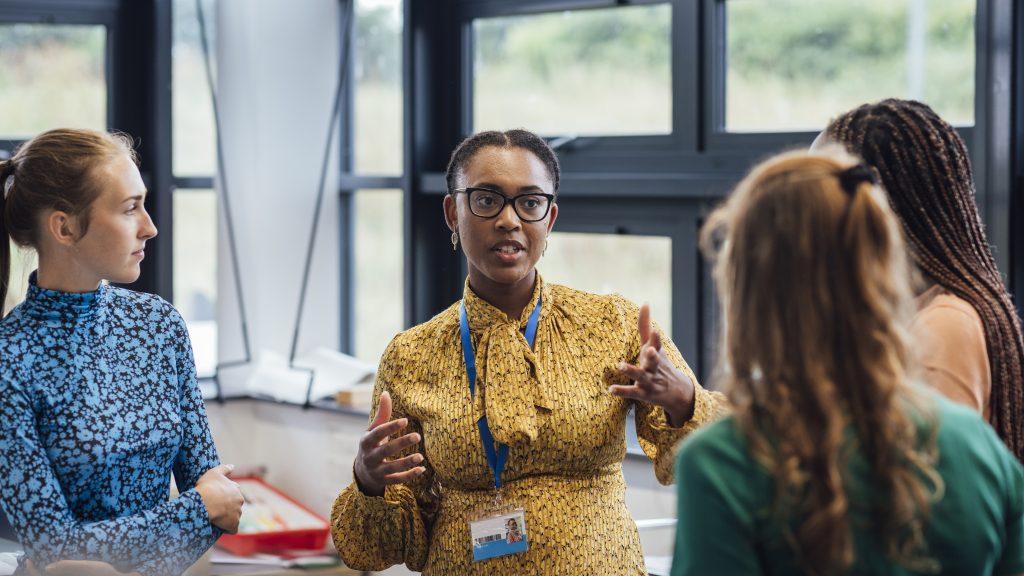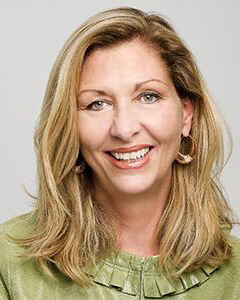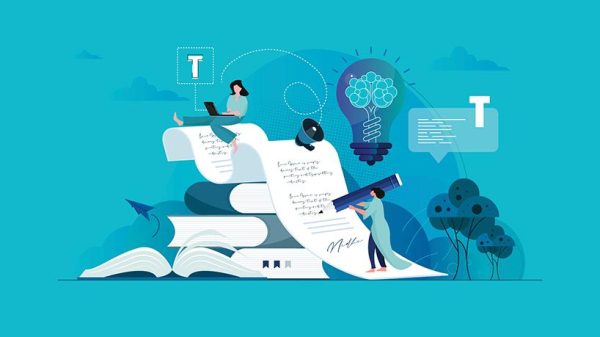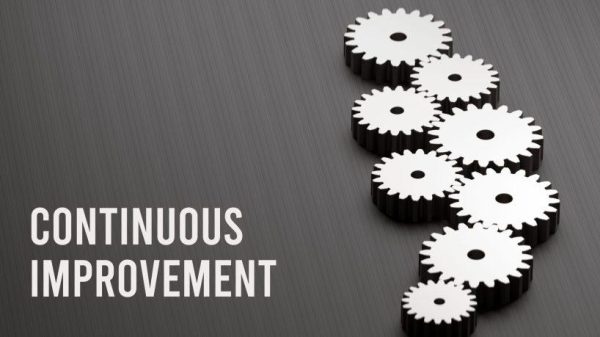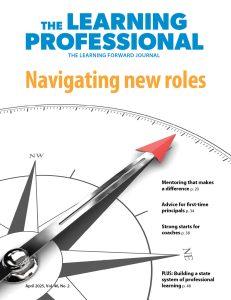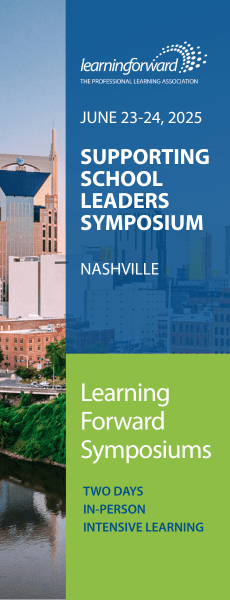As the new school year begins, district leaders and principals may be asking themselves, “I know teacher collaboration is the best way to improve our school’s instruction, but how can I best structure and support team learning and make sure it will improve student achievement?”
Guidance on effectively structuring collaborative learning time for teacher teams to solve specific student learning challenges is the beating heart of Becoming a Learning Team, a practical guide to a teacher-led cycle of continuous improvement. This guidance can help educators address all kinds of challenges that they and their students are facing this school year and beyond.
Professional learning leaders will have an opportunity to dive into this learning team cycle with expert facilitators during a session at Learning Forward’s 2023 Annual Conference in December.
The learning team cycle
The Becoming a Learning Team framework guiding the work of learning teams is a five-stage cycle of continuous improvement that builds on other popular problem-solving models, such as Plan-Do-Study-Act, but with modifications that uniquely align it to Learning Forward’s Standards for Professional Learning.
The Becoming a Learning Team framework’s first two stages — (1) analyzing data to identify student learning needs, and; (2) setting learning goals — are likely familiar at first glance to many educators. Yet the second stage sets up what is unique to this cycle — educators set learning goals for themselves as well as their students, before moving on to the third stage — (3) designing their own learning, which is unique to the Becoming a Learning Team improvement cycle and requires teachers to shift their thinking to prioritize their own needs. That’s an important difference from adopting the student’s goal as their own, according to Becoming a Learning Team book co-author Tracy Crow. Those goals are integrally connected, but they are not necessarily the same.
It’s at this stage of the cycle, Crow said, where teachers collectively inquire, “if this is where we want our students to be, where do we need to strengthen our practices, our knowledge, and our skills? It requires deliberate, intentional adult learning to put students in the position to achieve their goals,” she said. “It can represent a huge shift because many teachers believe ‘the student goal is my goal.'”
Becoming a Learning Team improvement cycle requires teachers to shift their thinking to prioritizing their own needs. Their learning goals are integrally connected to the student's goal, but are not the same. Share on XStages four and five are (4) implementing new learning in classrooms, and; (5) monitoring, assessing, and adjusting practice.
Ensuring that teachers have the time and support they need to collectively set their learning goals and the autonomy to learn from each other and from outside resources are hallmarks of Becoming a Learning Team improvement cycle, said Learning Forward’s John Eyolfson.
‘Permission’ to learn at work
Eyolfson, a former building administrator and past president of Learning Forward’s board of trustees, said Becoming a Learning Team cycle reinforces that teachers taking time to design their own learning and processing what they’re learning is not only OK, it’s an integral part of impacting their students’ learning.
“As I watch teams do this work, it’s interesting that teachers feel they need permission to stop and do their own learning, and then take that learning and implement it into their classroom; then come back and have professional conversations about how the learning is impacting student achievement,” Eyolfson said.
Learning Forward CEO Fred Brown remarked that teachers feeling as though they need “permission” to learn at work is a vestige of an era of teacher training that occurred in mandatory offsite workshops.
Teacher teams grappling with their practice, setting expectations for their own learning, and setting expectations for their students, are doing some of the most powerful forms of professional learning, Brown said. “It’s not one of those things that you need permission to do, because it’s the thing that will change your practice way more than some of those events that take place outside of the school. This whole notion of job-embedded professional learning is lived through the cycle.”
Learn more about the learning team cycle
Eyolfson, a Learning Forward senior consultant, and Kellie Randall, consultant, will facilitate a six-hour session on maximizing collaborative learning time for teachers, based on Becoming a Learning Team, at Learning Forward’s 2023 Annual Conference. Participants will come away knowing how to take steps to launch a learning team cycle with five key stages and examine how to implement each with specific strategies and supporting protocols. They will see how to support the meaningful implementation of high-quality instructional materials and receive tools and resources to help them focus on day-to-day actions, including the Becoming a Learning Team book.
Additional resources:
MyPD Unplugged podcast & learning team facilitation guide


